How to Study the Bible
Dr. David Jeremiah
A Ribbon Runs Through It
Some students of God’s Word have been reading and studying the Bible as long as I have (or longer) — more than six decades now. If so, you’ve noticed the same thing I have: Bibles have changed. Not the text of Scripture, but what’s included along with the text.
When I was young, everybody pretty much had the same Bible: a large, black, leather-covered edition of the Authorized Version—the “King James Bible.” And because Bibles were intended to be read daily by individuals or families, these Bibles came with a black silk ribbon attached to the spine that was used as a place marker. When you finished your personal or family devotions, you moved the ribbon to that page so you could pick up right there the next day. Remember that?
While those big black Bibles are still available, the trend today is “study Bibles” filled with resources in addition to the biblical text. It might take a half-dozen color-coded ribbons to mark all the trails you can follow through a modern study Bible. The first Bible with added resources was probably the Geneva Bible in 1560, followed by various editions of the Authorized Version beginning in 1611. In the modern era, the most famous study Bible was the Scofield Reference Bible, published in 1909.
After years of being asked to undertake creating a new study Bible from my lifetime of study of the Word of God, I finally felt the time was right to consolidate my life’s work into a single resource. This study Bible is dedicated to helping the everyday student of the Word to clearly understand “What It Says, What It Means, and What It Means for Me.” Since 2013, The Jeremiah Study Bible has helped thousands of readers do just that. Now, in addition to the New King James Version, The Jeremiah Study Bible is available in the New International Version, and a “ribbon runs through it.”
Ribbons That Rightly Divide the Word
Paul wrote to Timothy: “Be diligent to present yourself approved to God, a worker who does not need to be ashamed, rightly dividing the word of truth” (2 Timothy 2:15, italics added). I love that phrase, “rightly dividing.” Ribbon bookmarks running through the Bible are a beautiful image of what Paul meant by “rightly dividing” the Word of God. Paul meant for Timothy to be a student of Scripture. Timothy didn’t have a study Bible he could mark up and underline like we do ours, but he was to be a diligent student nonetheless—and so are we.
I want to highlight three kinds of ribbons that must run through each of our Bibles if we are going to rightly understand God’s Word and apply it in the twenty-first century.
First, a ribbon called “What the Bible Says.” This ribbon marks what the original authors of Scripture wrote to their original readers. Study Bibles help us immensely with this task by illuminating the meaning of the original Hebrew, Aramaic, and Greek texts. Not all of us are called to be scholars of ancient languages, but the more we study the fruit of Bible scholarship, the more convinced we will be of the divine authorship of Scripture.
Second, a ribbon called “What the Bible Means.” Once we know what the Bible says, we move to what the Bible means in its original context. And study Bibles provide numerous notes and aids to help us bridge thousands of years of cultural change. It’s important to know what the Bible meant to its original readers before we can accurately apply it to our own lives.
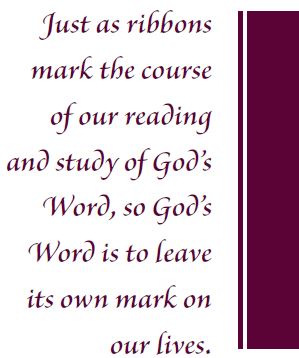
Third, a ribbon called “What the Bible Means for Me.” Too many people begin with this ribbon and invent their own theologies based on “what the Bible means to me.” That’s not where we begin. We learn how to apply the truth of God’s Word only after knowing what it says and what it means in its original context. Only then can we make accurate application to our own lives.
Just as ribbons mark the course of our reading and study of God’s Word, so God’s Word is to leave its own mark on our lives. Join me as we explore these three ribbons—the keys to “rightly dividing the Word of truth.”
What It Says – The Precise Accuracy of the Word
In 1804, British ship, HMS Apollo, was leading a convoy of sixty-nine other merchant vessels to the West Indies on a route that put them parallel to the coasts of Spain and Portugal, about a hundred miles from land. A storm arose on Sunday, April 1, April Fool’s Day, but the captain was unconcerned because his compass assured him he was well into open sea. But in the wee hours of the morning, the ship wrecked against the jagged rocks of the coastline. Jolted from their hammocks, the crew ran scantily clothed to their posts and tried to save the ship from the cold sea. The waves crashed over the hull, flooding the ship from above amid the screams of shipmen still below. As night gave way to dawn, the surviving crew were amazed to find themselves not a hundred miles from land but wrecked against the Portuguese coast, which was littered with the debris of many of the other ships in their convoy. Of the sixty-nine vessels traveling with HMS Apollo, forty were wrecked, some with total loss of life. It was one of the greatest disasters in the history of British maritime shipping.
The captain of HMS Apollo faced court-martial, but he was acquitted when it was learned that the fault lay not with him but with the ship’s compass. Because the Apollo had taken on a large iron tank, the magnetism of the compass was thrown off just a little—four degrees— and the error accumulated day after day. As leader of the convoy, the captain had unwittingly led the others to shipwreck because his compass was defective.
Many people today are shipwrecked in life because of a defective compass, and they lead others astray. As Christians, we have a Book that gives accurate readings and precise directions, that allows us to navigate life with confidence, and that always points us in the right way. We can trust it, and we can trust what it says.
The Bible Is an Inspired Book—Then
According to Hebrews 2:10, the Lord Jesus is the Captain of our salvation. He provides us with an accurate compass. As God, He is omniscient. He knows every fact in the universe. His thoughts are always just, His opinions always right, His knowledge always total. When He speaks, He makes no mistakes, wastes no words, and withholds nothing necessary for our knowledge. Because He wanted to communicate with us in a permanent form we could ponder and pass on to others, He inscribed His message in a book (our word “Bible” comes from a Latin term for “papyrus” and means “book”).
God transmitted a message from His omniscient mind into this accessible book through the process of “inspiration,” a word that is made up of the prefix “in” and the term “spire,” which means “breathe.” Think of our word “respiration,” having to do with the lungs. Or the word “expire,” describing someone no longer breathing. The apostle Paul explained, “All Scripture is given by inspiration of God” (2 Timothy 3:16). In other words, God breathed it out, He spoke it, just as we use our lungs to breathe out and form audible syllables. Peter further explained, “Prophecy never came by the will of man, but holy men of God spoke as they were moved by the Holy Spirit” (2 Peter 1:21).
The Spirit of God came upon certain people at certain times and guided them in the words they wrote so that, without suspending their own personalities or intellects, their writings were from God. This was commonly accepted even at the time the Bible was being given. Speaking in the upper room after the ascension of Christ, Peter quoted Psalm 69, a prophecy about the betrayal of Judas Iscariot. Here’s how Peter put it: “Men and brethren, this Scripture had to be fulfilled, which the Holy Spirit spoke before by the mouth of David concerning Judas, who became a guide to those who arrested Jesus” (Acts 1:16, emphasis added). That’s inspiration—the Lord speaking through the mouth of David and the other writers of Scripture; and that’s why the Bible is matchless, incomparable, and different from every other book in the history of religion and literature.
The Bible Is an Accurate Book—Now
If the Bible is inspired by an omniscient God, it’s logical to assume it’s accurate in all it says, unfailing and infallible. Every word and syllable—every jot and tittle—is full of truth and authority. That doesn’t mean that every copy of the Bible is accurate, of course. There was a famous (or infamous) edition of the King James Bible published in 1631 by the London printers Robert Barker and Martin Lucas. It’s called the “Wicked Bible” because the editors inadvertently left out the word “not” from Exodus 20:14. Instead of saying, “Thou shalt not commit adultery,” the verse read, “Thou shalt commit adultery.”
Those kinds of mistakes are thankfully very rare, and we have fullest confidence in the transmission and translation of God’s Word as it has been passed down from antiquity to us. While we don’t have the original inerrant parchments or papyri written by the actual biblical authors, we have a remarkable chain of manuscripts going back to very early days. No book in history has the richness of manuscripts as the Bible. No other book even comes close. So we persuasively can say the original biblical documents were inerrant, infallible, and wholly accurate, for Almighty God gave them and He makes no mistakes. And we can be confident that our existing copies are so reliable that when a faulty one shows up like the “Wicked Bible,” it stands out like a sore thumb.
The Bible Is a Relevant Book—Always
Since the Bible is inspired and accurate, it’s always relevant. It’s more up to date than any of today’s self-help books, advice columns, theological tomes, or runaway best sellers. Because it came from the mind of the eternal God, it is timeless in its application. We never know when a verse of Scripture may come out of thin air and change our lives.
Out of thin air? Well, consider what happened to Andres, the oldest son of Chief Fernando of the Muinane tribe in the nation of Colombia. As Andres tended his rubber trees in a large section of the South American jungle, he started asking himself questions about life, like where we came from and what happens after death. One night in boredom, he began fiddling with a transistor radio given to him by a rubber baron. Suddenly Andres picked up a sharp, clear signal from Trans World Radio. A man was reading these words: “The sun will be darkened, and the moon will not give its light; the stars of heaven will fall, and the powers in the heavens will be shaken. Then they will see the Son of Man coming in the clouds with great power and glory” (Mark 13:24–26).
By strange coincidence, that very evening the moon did not give its light. Though Andres didn’t understand it at the time, a total lunar eclipse covered the jungle with blackness. The young Colombian, deeply stirred, returned home. The next day Jim Walton of Wycliffe Bible Translators arrived unexpectedly and, opening his New Testament in the village, began reading God’s Word.
Andres was spellbound. He later said, “When I saw you reading that book, I knew it was the book from the radio, the book that had the truth.”
And when you said it was God’s Word, and you wanted to put it in my language, I determined to help you.” For the next eighteen years, Andres served Jim as cotranslator, helping complete the first draft of the New Testament and portions of the Old Testament.
As we study the Bible seeking its meaning according to sound principles of Bible study, it has a way of speaking to us. If it is inspired and accurate, it has to be relevant.
We’ve never had so much material to read—billions of words are available online every day. It’s easy to sit down at our electronic devices and spend hours “surfing.” But too much surfing can wreck a person’s life on the rocky shoreline of deadly data. Instead, spend large portions of time studying God’s Word. It is precise and accurate in all it says. It is relevant for all our days.
The Word of God is a light for our steps, a lamp for our pathways, a plumb line for our thinking, and a sure compass for our souls.
What It Means – The Proper Awareness of the Word
Have you ever given something holy to a dog or thrown a pearl in front of a pig?
- Have you ever seen a camel that would fit through the eye of a needle?
- Have you read two verses in the Bible that seem contradictory?
- Have you ever seen someone shave a man’s beard half off and steal his pants?
You have likely never seen nor heard of anyone doing these things in our modern world. But you have read about them in the Bible. The four situations above are examples of why understanding context is so important in knowing what the Bible means.
- DOGS, PEARLS, AND PIGS.
In Matthew 7:6, Jesus said not to “give what is holy to the dogs” nor “cast your pearls before swine.” In biblical times, pearls were truths of Scripture and the mysteries of the kingdom were holy, and the Jews referred to Gentiles as dogs or pigs because both were unclean. Just as dogs and pigs cannot appreciate the value of pearls and holy things, some people are not ready to receive spiritual truth.
Application: Better to move on to others than to argue or debate with those who reject God’s truth.
- CAMELS AND A NEEDLE’S EYE.
In Matthew 19:24 (and Mark 10:25; Luke 18:25) Jesus said “it is easier for a camel to go through the eye of a needle than for a rich man to enter the kingdom of God.” In Jesus’ day, the camel was one of the largest animals known and a needle’s eye was one of the smallest openings known. So Jesus was simply using exaggeration by way of contrast. We know of larger and smaller things in our modern world and could retell the phrase with different words and have it mean the same thing. The key word is “easier.”
Application: don’t let wealth make it next to impossible to receive God’s grace.
- ANSWER OR DON’T ANSWER A FOOL?
Proverbs 26:4a says not to “answer a fool according to his folly,” but Proverbs 26:5a says the opposite: “Answer a fool according to his folly.” So which is right? They both are based on the context of the Book of Proverbs. The context of Proverbs is wisdom versus folly. On the one hand, if you answer a fool you may become like the fool; you may become a fool yourself (verse 4b). On the other hand, if you don’t answer the fool, he might think he is right and smart—so you better answer him to set him straight (verse 5).
Application: it takes wisdom and discernment to know when to answer a fool.
- HALF-SHAVING BEARDS AND STEALING TROUSERS
When the king of Ammon died and his son ascended the Ammonite throne, King David of Israel sent a delegation of men to express his sympathy to the new king on the loss of his father. Instead of being grateful for the gesture, the young Ammonite king shaved off half of David’s men’s beards and cut off their garments “in the middle, at their buttocks” (2 Samuel 10:4) and sent them back to David. David’s men “were greatly ashamed” (verse 5). For a man’s beard to be shaved half off and his body exposed was a condition of great shame and humiliation. David allowed his men to live in seclusion until their beards regrew and their shame was past. To lift such an act out of context and apply it today would be indefensible, as would any other act of making another person feel ashamed. This was a hateful act perpetrated by a pagan king—not to be copied.
Application: the context of old testament
Context Is Everything
Next, let’s look at the second ribbon that we must use to rightly divide the Word of God: What does the Bible mean? Or, What did the Bible mean to the audience to which it was originally written? To answer that question, we must become students of context.
By way of reminder, biblical context then means exactly what “context” means today. If someone hears you say something (“I’m not going to ask Mary to attend”) without knowing the context (“Mary has been ill and has so many family things going on right now”), your words could be misunderstood and misapplied.
Instead of excluding Mary for selfish reasons, it was your compassion for Mary that was the focus. But without that context—reasons, tone of voice, body language, relationships—your words could be taken totally out of context.
It has been rightly said that “context is everything” for this reason (and I encourage you to remember this principle of biblical interpretation): A text taken out of context becomes a pretext. One of the ways people can make the Bible say whatever they want it to say is by taking biblical texts out of their original context. Those texts then become a pretext: a way to justify one’s actions while hiding the true motivation or reason.
Here’s an example: The fifth of the Ten Commandments told Israelites to “honor your father and mother” (Exodus 20:12). By Jesus’ day, Jewish tradition allowed men to circumvent that responsibility to their parents by dedicating to God (to the temple) the money they would have used for their parents. Jesus pointed out this hypocrisy in Mark 7:10–13. They used a Jewish tradition (“dedicate your money to the temple”) as a pretext for failing to care for their parents and adhere to the fifth of the Ten Commandments.
Another example: In 1 Corinthians 7, Paul gives advice that seems very strange to us today—if you are single, don’t get married; if you’re married, don’t change your marital status; if you’re a slave, don’t try to gain your freedom. In other words, don’t make any life-altering changes; don’t make any big moves—stay where you are. Why did Paul say those things? For two reasons: Life in the Roman world was very tenuous for the early church; persecution and trouble were widespread. And there was some sort of “distress” going on in Corinth when Paul wrote his letter. His restrictive advice was probably based on the Corinthians’ context: Don’t make changes and draw attention to yourself at the moment; be content until the present crisis passes. Secondly, Paul may have been anticipating the imminent return of Christ: “But this I say, brethren, the time is short” (verse 29). Paul would have meant: “Don’t let your affairs be your dominant concern. Christ’s kingdom should set your agenda going forward. We live now for Christ, not for ourselves. If that requires sacrifice, so be it.”
So are we free to marry today and make long-term plans? Of course (Ephesians 5:22–33). First Corinthians 7 was addressing specific questions, rooted in context, that the Corinthians had asked Paul (1 Corinthians 7:1)—and his answers must be read that way.
Living Contextually
Paul wrote, “All Scripture … is profitable” (2 Timothy 3:16). And we know that “all Scripture” was written many centuries ago. Therefore, “all Scripture” must be read contextually. As Christians we must …
- READ CONTEXTUALLY. Every time you open your Bible, remember you are reading something written in a totally different cultural context. That means we must learn what it said then before we know how to apply it now.
- STUDY CONTEXTUALLY. Use your study Bible to dig into Scripture to understand culturally different words, images, and meanings. Become a contextually aware student of God’s Word!
- APPLY CONTEXTUALLY. Scripture is not only for doctrine (knowing), but for “reproof, for correction, for instruction in righteousness” (2 Timothy 3:16). The goal of Bible study is application leading to life-change. It is our responsibility to make proper application of the timeless truths of Scripture.
- LIVE CONTEXTUALLY. The Bible does not provide a verse for every single circumstance we might face in life. But the more we live in the context of Scripture as a whole, in the context of the presence of the Spirit, and in the context of obedience to Christ in all things, the more wisdom and discernment we will have in daily living. Those who are “in Christ” (2 Corinthians 5:17) have a new context for living—“behold, all things have become new.”
Remember: Context is critical!











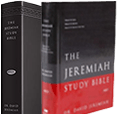


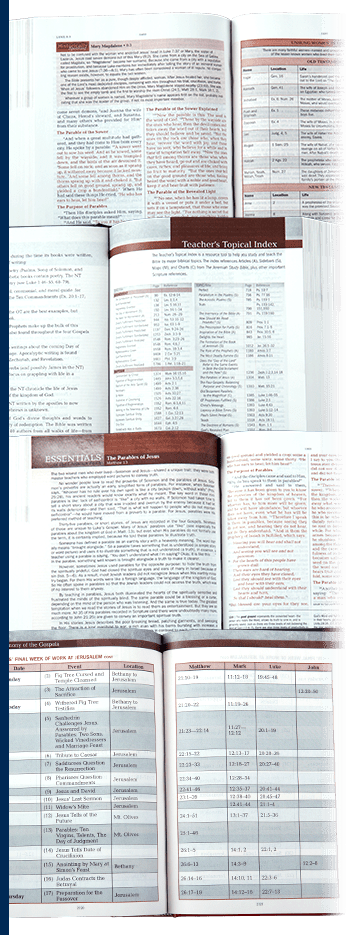
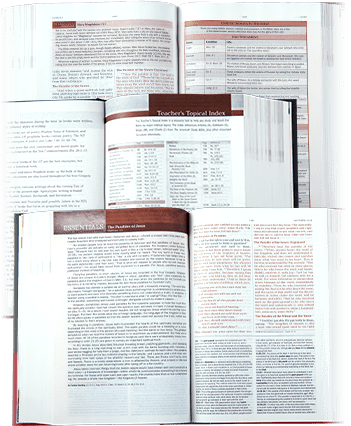
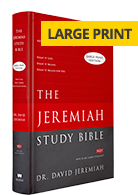
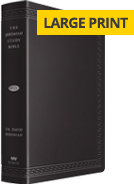
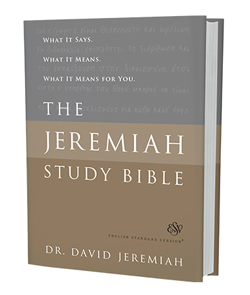
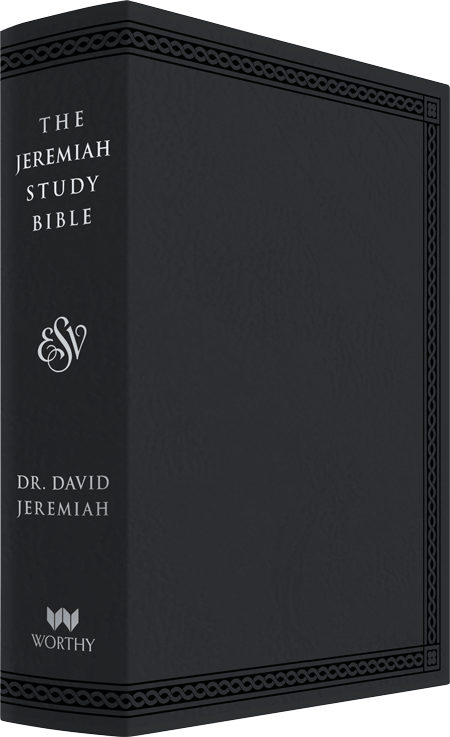
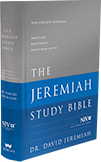


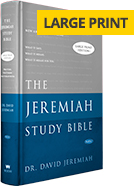
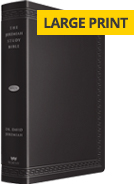
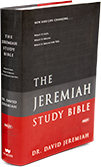

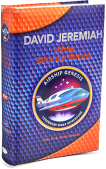
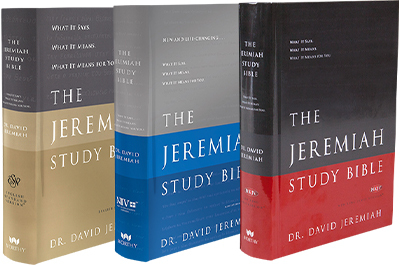

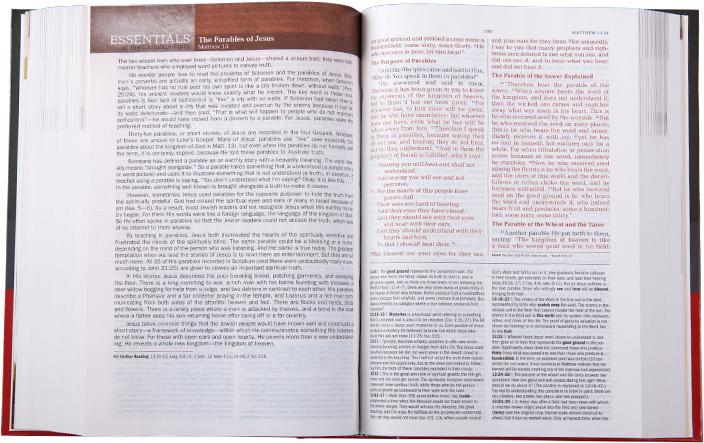
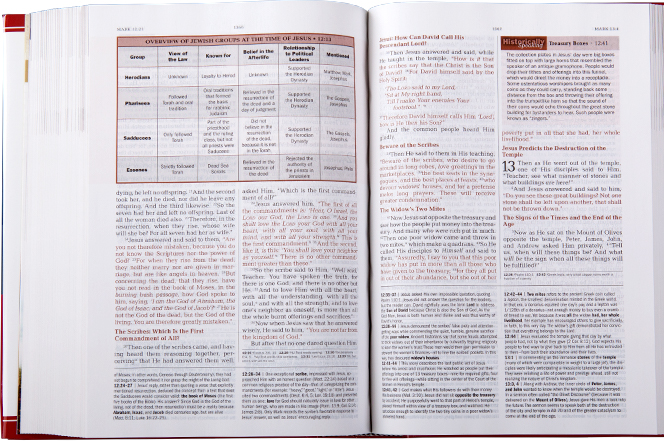
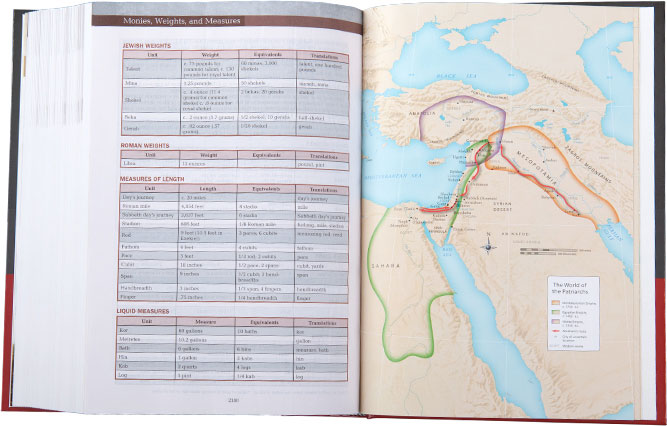
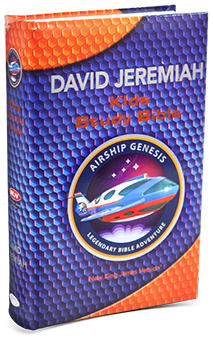
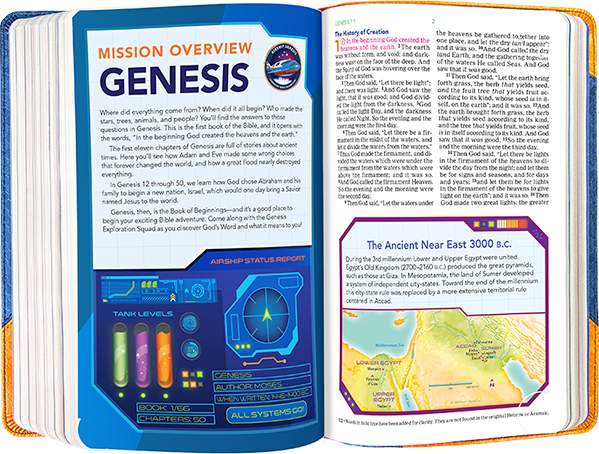
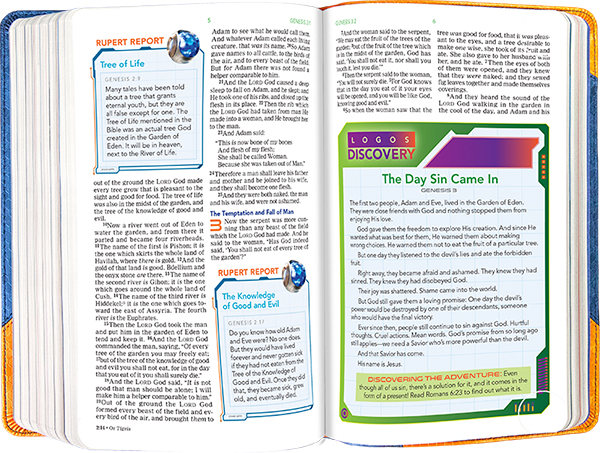
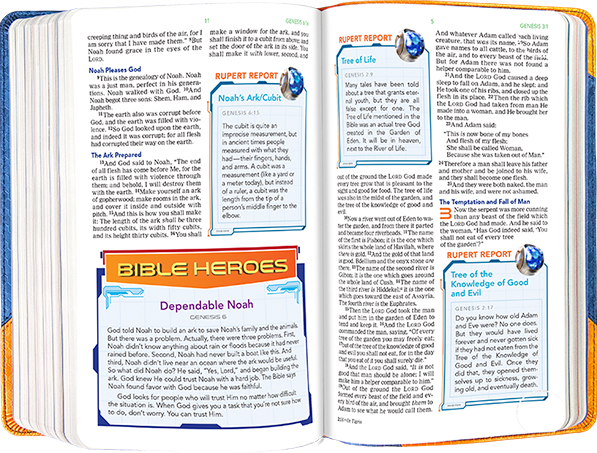
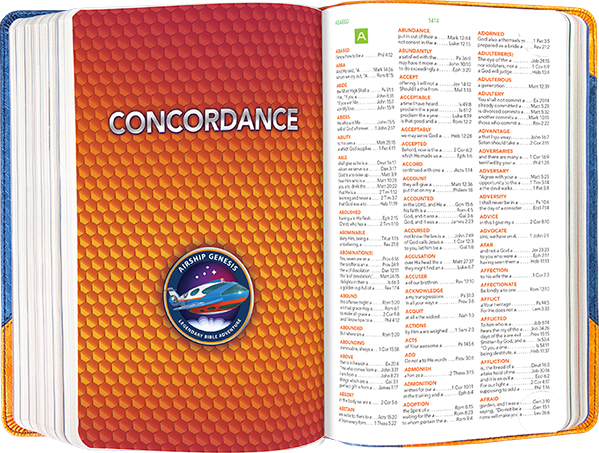







 Turning Point for God is a tax-exempt, not-for-profit, religious corporation as defined under Section 501(c)(3) of the Internal Revenue Code. Your donation gift(s) are very much appreciated and may qualify as a charitable deduction for federal income tax purposes.
Turning Point for God is a tax-exempt, not-for-profit, religious corporation as defined under Section 501(c)(3) of the Internal Revenue Code. Your donation gift(s) are very much appreciated and may qualify as a charitable deduction for federal income tax purposes.




